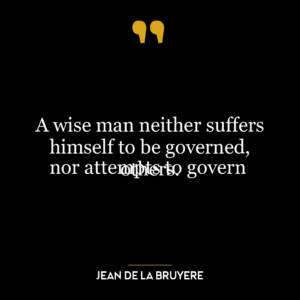This quote implies that the federal government is a representative body that serves the interests of the people. The budget, which is a detailed plan of income and expenses, is therefore a reflection of the needs and priorities of the people. The government’s role is to allocate resources in a way that meets these needs, whether it’s healthcare, education, defense, or infrastructure.
The budget is not just a financial plan, it’s a social contract. It shows where the government is choosing to invest its resources and where it’s not. It’s a clear indication of what issues and areas the government, and by extension the people, value most.
In today’s world, this idea is more relevant than ever. As societies grapple with issues such as climate change, income inequality, and public health crises, the budget becomes a critical tool in addressing these challenges. For instance, a government that allocates a significant portion of its budget towards renewable energy and sustainable practices shows that it values environmental sustainability and is responsive to the needs of its people in this area.
On a personal level, this quote can be a reminder that our personal budgets are also a reflection of our needs and values. Just as a government allocates funds to different sectors based on their importance, individuals can also prioritize their spending based on what matters most to them. This could mean spending more on education and personal development, investing in health and wellness, or saving for the future.
In essence, the idea behind this quote is about prioritization and resource allocation – be it in a government or personal context. It emphasizes the importance of aligning financial decisions with needs and values.











